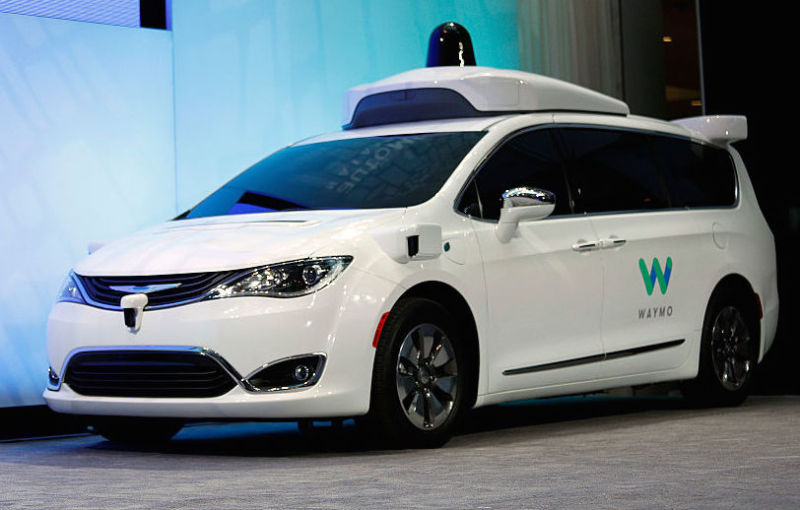

Waymo hit by second round of layoffs, has cut 8 percent of staff this year
source link: https://arstechnica.com/gadgets/2023/03/waymo-hit-by-second-round-of-layoffs-has-cut-8-percent-of-staff-this-year/
Go to the source link to view the article. You can view the picture content, updated content and better typesetting reading experience. If the link is broken, please click the button below to view the snapshot at that time.

The only other company doing these "continual layoffs" seems to be Twitter —
Waymo hit by second round of layoffs, has cut 8 percent of staff this year
Waymo says the cuts will let it “focus on commercial success.”
Ron Amadeo - 3/2/2023, 6:42 PM

When will the Alphabet layoffs end? Layoffs are always hard, but usually you want to do these things in one big cleave, letting employees know the cuts are over so they can stop worrying and get back to work. Google had its initial big set of layoffs in January, when it cut 12,000 jobs, and employees were supposed to be quickly told of the cuts once that announcement was made. It's March now, and more cuts are still trickling in. Last week, Alphabet's "Everyday Robots" subsidiary was shut down, and the entire staff was laid off. This week Waymo is going through a second round of layoffs.
Reuters reports the self-driving car company has cut another 137 staff members, bringing the total cuts at the Alphabet subsidiary to 8 percent this year, or 209 total employees. Waymo said the cuts would let it “focus on commercial success,” something that has escaped Waymo previously.
Waymo has been around for 14 years now, but it hasn't had much in the way of "commercial success." It is absolutely the leader in self-driving car technology, and reaching a point where it could be widely rolled out would make Waymo an incredible amount of money. It could revolutionize trucking, disrupt Uber and Lyft—which have to pay drivers—and could result in a ton of licensed technology deals with car manufacturers. Getting there is a long road with no end in sight, though.
Waymo continually makes progress. Earlier this week it announced it had hit 1 million rider-only miles, meaning trips with no driver in the seat at all. The company is also working on its second ground-up design of a driverless vehicle, an all-electric minivan with no human controls. The company has a "Waymo One" ride-hailing service that generates some paltry amount of revenue, but it's only available in San Francisco and Phoenix. The question of when or how Waymo will scale is always met with concerns about cost, safety, and readiness.
AdvertisementGoogle is definitely a changing company. When it first had its initial public offering in 2004, the founders, Larry Page and Sergey Brin, touted that "Google is not a conventional company. We do not intend to become one," meaning that while it was going to start selling stock, it didn't intend to adhere to the whims of Wall Street. The company was set up with a dual-class voting structure that kept shareholder voting power with Google's founders, allowing Page and Brin to solely set the company's direction, and they wouldn't have to listen to investors focused only on the next quarter. Those founders are gone, though, and over the years, the new boss, Sundar Pichai, has slowly turned Google into more and more of a conventional company. Those 12,000 job cuts in January were the biggest ever for Google, and thanks to Page and Brin's philosophy that making Google the best place to work would help it land talented employees, those were really the first major layoffs Google has ever experienced.
Activist investor Christopher Hohn of TCI Fund Management—who now seems to have the ear of Pichai—only sees those 12,000 job cuts as "a step in the right direction." Hohn wants to see Google reduce costs by cutting another 25,000 people and paying its employees less. Hohn has specifically targeted Waymo in some of his remarks, too, saying that "enthusiasm for self-driving cars had collapsed and competitors have exited the market... Waymo has not justified its excessive investment and its losses should be reduced dramatically." Waymo is the biggest part of Google's "Other Bets" line item in its financial reports, which includes all of non-Google Alphabet. Google's long-term research investments in Alphabet companies are costing it $6 billion a year (a number Hohn wants to see cut in half), but Alphabet can afford it, as it made almost $60 billion in profit for 2022.
Recommend
About Joyk
Aggregate valuable and interesting links.
Joyk means Joy of geeK